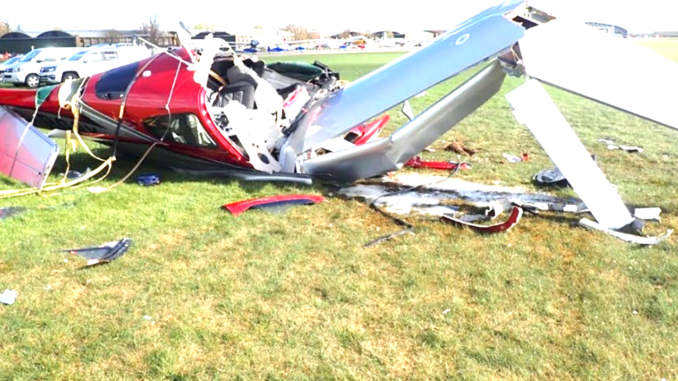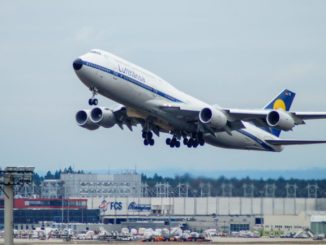
According to the report from the Air Accidents Investigation Branch (AAIB), inexperience was the major factor in a fatal crash of a Cirrus SR22 at Duxford last year.
The report concluded that there was no fault with the aircraft at the time of the crash, which occurred during a flight on the 26th of March, 2024.
The sole occupant, Pilot Simon Riggs (58), had a total of 115 flying hours but had only flown 9 hours in the preceding 90 days and nothing at all in the 28 days leading up to the accident.
Mr Riggs was flying circuits at the Cambridgeshire airfield, and during was landing the Cirrus SR22 G-RGSK and had planned to take-off again, a procedure called a Touch and Go.
As he landed the aircraft, it bounced significantly, and despite immediately applying full power, Mr Riggs lost control of the aircraft, which banked through 90 degrees and impacted the ground.
Cirrus’s ballistic recovery system, a parachute designed to help recovery from a stall and allow the aircraft to float safely to the ground, triggered, but the aircraft had already hit the ground.
The AAIB concluded that Mr Riggs was inexperienced in terms of flying hours and at “that this stage in his flying, the pilot was still consolidating his skills and likely vulnerable to being overwhelmed by unexpected events. However, previous similar accidents have occurred with pilots with higher levels of experience and even with instructors on board.“
Noting that similar accidents had occurred with more experienced pilots, the report added, “This suggests that general flying experience on type or on other types does not assure that the appropriate handling technique will always be followed.”
The AAIB also recommended that obvious and unambiguous markings should be applied on aircraft fitted with ballistic recovery systems.
The full report can be found here: https://www.gov.uk/aaib-reports/aaib-investigation-to-cirrus-sr22t-g-rgsk



